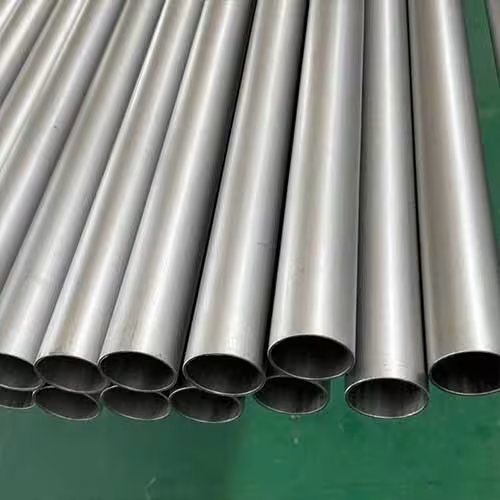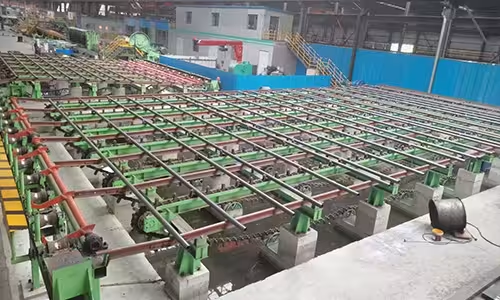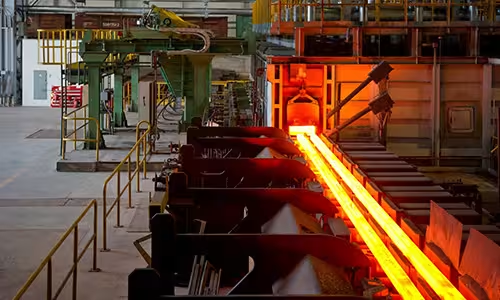Welcome to My Blog!
Before we dive into the content, I’d love for you to join me on my social media platforms where I share more insights, engage with the community, and post updates. Here’s how you can connect with me:
Facebook:https://www.facebook.com/profile.php?id=61565500692293
Now, let’s get started on our journey together. I hope you find the content here insightful, engaging, and valuable.
Table of Contents
Introduction
Alloy steel pipes are widely used in industries such as energy and petrochemicals, aerospace, and construction due to their superior strength, corrosion resistance, and versatility. Alloy steel pipes are made by mixing steel with elements such as chromium, molybdenum, nickel, or vanadium, which enhance the mechanical properties and durability of the steel pipe.
This blog provides a comprehensive application guide for alloy steel pipes, exploring their characteristics, uses, and selection criteria to help engineers, procurement experts, and industry professionals make informed decisions.
Properties Enabling Alloy Steel Pipe Applications

Chemical Composition of Alloy Steel Pipes
The unique properties of alloy steel pipes stem from their chemical composition, which includes alloying elements that enhance performance. Common elements include:
- Chromium (Cr): Improves corrosion resistance and hardness, critical for alloy steel pipe applications in harsh environments.
- Molybdenum (Mo): Enhances strength and resistance to high temperatures and creep, ideal for power generation.
- Nickel (Ni): Increases toughness and resistance to low temperatures, suitable for cryogenic applications.
- Vanadium (V): Boosts strength and wear resistance, supporting alloy steel pipe applications in structural uses.
- Carbon (C): Controlled levels ensure a balance of strength and ductility.
These elements make alloy steel pipes robust, enabling diverse alloy steel pipe applications across industries.
Mechanical Properties Supporting Alloy Steel Pipe Applications
The mechanical properties of alloy steel pipes are tailored to meet demanding conditions, making them suitable for critical applications. Key properties include:
- Tensile Strength: Typically 600–1000 MPa, ensuring alloy steel pipes can handle high-pressure fluids or structural loads.
- Yield Strength: Around 400–800 MPa, providing resistance to deformation under stress.
- Hardness: Varies by alloy, often 200–300 HB (Brinell), balancing durability and machinability.
- Impact Toughness: Enhanced by nickel, allowing alloy steel pipes to perform in low-temperature environments.
- Creep Resistance: Critical for high-temperature alloy steel pipe applications, preventing deformation over time.
These properties ensure alloy steel pipes excel in environments where standard carbon steel pipes would fail.
Common Alloy Steel Pipe Applications
Oil and Gas Industry Alloy Steel Pipe Applications
Alloy steel pipe applications in the oil and gas industry are extensive due to the material’s ability to withstand high pressure, corrosive fluids, and extreme temperatures. These pipes are used in:
- Pipelines: Transporting crude oil, natural gas, or refined products over long distances, where corrosion resistance is essential.
- Downhole Tubing: Used in drilling operations to handle high-pressure and corrosive downhole environments.
- Refinery Piping: Managing high-temperature processes like cracking or reforming, where alloy steel pipe applications leverage molybdenum for creep resistance.
The durability and corrosion resistance of alloy steel pipes make them ideal for these demanding applications.
Power Generation and Alloy Steel Pipe Applications
In power generation, alloy steel pipe applications are critical for handling high-temperature steam and corrosive conditions. Common uses include:
- Boiler Tubes: Alloy steel pipes with high chromium and molybdenum content resist heat and oxidation in coal, gas, or nuclear power plants.
- Heat Exchangers: Transfer heat efficiently in turbines or cooling systems, leveraging the thermal stability of alloy steel pipes.
- Superheater Tubes: Operate at extreme temperatures, where alloy steel pipe applications ensure long-term reliability.
These applications highlight the ability of alloy steel pipes to perform in high-stress environments.
Chemical and Petrochemical Alloy Steel Pipe Applications
The chemical and petrochemical industries rely on alloy steel pipe applications for processing aggressive substances. Uses include:
- Process Piping: Transporting acids, alkalis, or other corrosive chemicals, where chromium and nickel enhance corrosion resistance.
- Reactors and Vessels: Alloy steel pipes connect reactors, withstanding high pressure and chemical exposure.
- Catalyst Tubes: Used in catalytic processes, requiring resistance to thermal cycling and corrosion.
Alloy steel pipe applications in these sectors ensure safety and efficiency in handling hazardous materials.
Aerospace and Automotive Alloy Steel Pipe Applications
Alloy steel pipe applications in aerospace and automotive industries leverage the material’s high strength-to-weight ratio and durability. Examples include:
- Aircraft Components: Hydraulic lines and exhaust systems use alloy steel pipes for their resistance to heat and vibration.
- Automotive Exhausts: Alloy steel pipes withstand high temperatures and corrosive exhaust gases.
- Structural Tubing: Used in chassis or suspension components, where strength and toughness are critical.
These alloy steel pipe applications support precision and reliability in high-performance vehicles and aircraft.
Construction and Infrastructure Alloy Steel Pipe Applications
In construction, alloy steel pipe applications provide structural integrity and durability for infrastructure projects. Common uses include:
- Piling: Alloy steel pipes support foundations in bridges or high-rise buildings, resisting corrosion in soil or water.
- Structural Supports: Used in frameworks for buildings or industrial facilities, leveraging high tensile strength.
- Water and Gas Lines: Alloy steel pipes ensure long-term reliability in municipal pipelines exposed to environmental stressors.
These applications demonstrate the versatility of alloy steel pipes in demanding construction environments.
Alloy Steel Pipe Applications Comparison Table
To assist in understanding alloy steel pipe applications, the following table compares their uses across industries, highlighting key properties and typical applications. This table serves as a reference for selecting the right alloy steel pipe for specific needs.
| Industry | Key Properties | Typical Applications | Alloying Elements | Environmental Conditions | Performance Benefits |
|---|---|---|---|---|---|
| Oil and Gas | Corrosion resistance, high pressure tolerance | Pipelines, downhole tubing, refinery piping | Cr, Mo, Ni | High pressure, corrosive fluids | Durability, reliability |
| Power Generation | Creep resistance, thermal stability | Boiler tubes, heat exchangers, superheater tubes | Cr, Mo | High temperatures, steam | Long-term performance |
| Chemical/Petrochemical | Corrosion resistance, chemical stability | Process piping, reactors, catalyst tubes | Cr, Ni, Mo | Aggressive chemicals, high pressure | Safety, corrosion resistance |
| Aerospace/Automotive | High strength-to-weight, heat resistance | Hydraulic lines, exhaust systems, structural tubing | Ni, V, Cr | Vibration, heat, corrosion | Precision, lightweight strength |
| Construction | High tensile strength, durability | Piling, structural supports, water/gas lines | Cr, V | Soil, water, structural loads | Longevity, load-bearing capacity |
This table illustrates the diverse alloy steel pipe applications, helping professionals match material properties to project requirements.
Fabrication and Maintenance for Alloy Steel Pipe Applications


Fabrication Techniques for Alloy Steel Pipes
Fabricating alloy steel pipes requires precision to maintain their properties for various alloy steel pipe applications. Common techniques include:
- Welding: TIG or MIG welding with compatible filler materials preserves corrosion resistance and strength. Low-carbon variants reduce the risk of sensitization.
- Cutting: Plasma or laser cutting ensures precise dimensions without compromising alloy steel pipe integrity.
- Forming: Bending or rolling alloy steel pipes for specific shapes, leveraging their ductility.
- Heat Treatment: Post-fabrication annealing or quenching enhances strength and toughness for demanding alloy steel pipe applications.
Proper fabrication ensures alloy steel pipes meet performance standards in their intended applications.
Maintenance Practices for Alloy Steel Pipes
Maintaining alloy steel pipes is essential to maximize their lifespan in alloy steel pipe applications. Key practices include:
- Regular Inspections: Check for corrosion, cracks, or wear, especially in high-pressure or corrosive environments.
- Cleaning: Remove scale, rust, or residues using non-abrasive methods to preserve surface integrity.
- Corrosion Protection: Apply coatings or cathodic protection in aggressive environments like marine or chemical settings.
- Monitoring: Use sensors to track pressure, temperature, or corrosion rates in critical alloy steel pipe applications.
These practices ensure alloy steel pipes remain reliable and efficient over time.
Selecting the Right Alloy Steel Pipe for Applications
Matching Alloy Steel Pipe Grades to Applications
Different grades of alloy steel pipes are tailored for specific alloy steel pipe applications. Common grades include:
- ASTM A335 P11/P22: High chromium and molybdenum content for power generation and high-temperature applications.
- ASTM A213 T9: Used in boiler tubes, offering excellent creep resistance.
- ASTM A333 Grade 6: Suitable for low-temperature alloy steel pipe applications, such as cryogenic piping.
- ASTM AISI 4130/4140: High strength for aerospace and automotive structural tubing.
Selecting the appropriate grade ensures optimal performance for specific alloy steel pipe applications.
Environmental and Operational Considerations
When choosing alloy steel pipes, consider the operating environment and application requirements:
- Temperature: High-temperature applications (e.g., power plants) require grades with creep resistance, like P11 or P22.
- Corrosion: Marine or chemical environments demand high chromium and nickel content for corrosion resistance.
- Pressure: High-pressure systems, such as oil and gas pipelines, need pipes with high tensile strength.
- Fabrication Needs: Ensure the pipe’s weldability and formability align with project specifications.
These considerations guide the selection of alloy steel pipes for specific alloy steel pipe applications.
Environmental and Economic Benefits of Alloy Steel Pipe Applications

Sustainability in Alloy Steel Pipe Applications
Alloy steel pipes contribute to sustainability through their durability and recyclability. Their long lifespan reduces the need for frequent replacements, minimizing resource consumption. Additionally, alloy steel is fully recyclable, allowing scrap pipes to be repurposed without loss of properties, supporting eco-friendly alloy steel pipe applications.
Economic Advantages
The durability and low maintenance requirements of alloy steel pipes offer economic benefits for alloy steel pipe applications. While initial costs may be higher than carbon steel, their resistance to corrosion, wear, and high temperatures reduces repair and replacement costs, making them a cost-effective choice for long-term projects.
Conclusion
Alloy steel pipe applications are integral to industries requiring robust, reliable materials for challenging environments. From oil and gas pipelines to power plant boilers and aerospace components, alloy steel pipes deliver exceptional performance due to their tailored chemical and mechanical properties.
The comparison table provided earlier offers a quick reference for matching pipe grades to applications, while the detailed sections on fabrication, maintenance, and selection guide professionals toward optimal use.
FAQ
What are alloy steel pipe applications, and why are they important?
Alloy steel pipe applications involve using alloy steel pipes in industries like oil and gas, power generation, and aerospace due to their strength, corrosion resistance, and durability. They are critical for handling high-pressure, high-temperature, or corrosive environments.
How do alloy steel pipes differ from carbon steel pipes?
Alloy steel pipes contain elements like chromium, molybdenum, or nickel, enhancing corrosion resistance, strength, and temperature tolerance compared to carbon steel pipes, making them ideal for demanding alloy steel pipe applications.
What industries benefit most from alloy steel pipe applications?
Oil and gas, power generation, chemical/petrochemical, aerospace, automotive, and construction industries benefit from alloy steel pipe applications due to the material’s ability to withstand extreme conditions.
How do I choose the right grade for alloy steel pipe applications?
Select grades based on environmental conditions and application needs. For example, ASTM A335 P11 is suited for high-temperature power plants, while A333 Grade 6 is ideal for cryogenic alloy steel pipe applications.
What maintenance is required for alloy steel pipe applications?
Regular inspections, cleaning to remove scale or residues, corrosion protection, and monitoring for wear ensure the longevity of alloy steel pipes in their applications.

